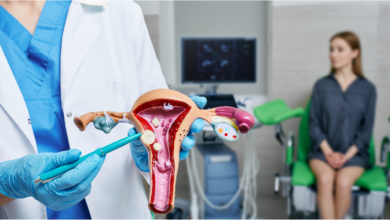
What is osteoporosis?
Osteoporosis is a bone disease in which bone density is reduced and bone fragility increases, which can lead to fractures. It occurs when the body loses bone tissue faster than it can replace it.
What are the symptoms of osteoporosis?
Osteoporosis often has no obvious symptoms until a fracture occurs. However, some people may experience:
• Back pain
• Loss of height
• Fractures (especially of the hip, wrist or spine)
Who can suffer from osteoporosis?
Osteoporosis can affect anyone, but it is most common in:
- Women after menopause
- Men over the age of 50
- People with a family history of osteoporosis
- People with certain medical conditions, such as thyroid disease or rheumatoid arthritis
- People who are taking medications that can affect bone density
What are the types of osteoporosis?
There are two main types of osteoporosis:
- Primary osteoporosis: occurs due to natural aging or hormonal changes.
- Secondary osteoporosis: occurs due to underlying medical conditions or medications.
What diagnostic tests are available for osteoporosis?
A healthcare professional can diagnose osteoporosis through a combination of:
- Bone mineral density (BMD) testing: Measures bone density using a dual-energy X-ray absorptiometry (DEXA) scan.
- Medical history: Assessing risk factors and symptoms.
- Physical examination: Checking for signs of fractures or low bone mass.
What is the treatment for osteoporosis?
Treatment for osteoporosis aims to prevent fractures and improve bone density. This may include:
- Medications: Bisphosphonates, calcitonin or hormone replacement therapy may help increase bone density.
- Lifestyle changes: Weight-bearing exercises, a balanced diet rich in calcium and vitamin D and avoiding excessive alcohol and tobacco consumption can support bone health.
- Surgery: In some cases, surgery may be needed to repair fractures or correct spinal deformities.
What diet should I take?
A diet rich in calcium and vitamin D is essential for bone health. Calcium-rich foods include dairy products, leafy vegetables, and fortified foods. Vitamin D is produced by the body when exposed to sunlight, but it can also be obtained from fortified foods and supplements.
Which doctor will treat osteoporosis?
• Endocrinologist
Can osteoporosis be completely cured?
Osteoporosis is a chronic disease that cannot be completely cured. However, with proper treatment and lifestyle changes, it is possible to control the disease and reduce the risk of fractures.





